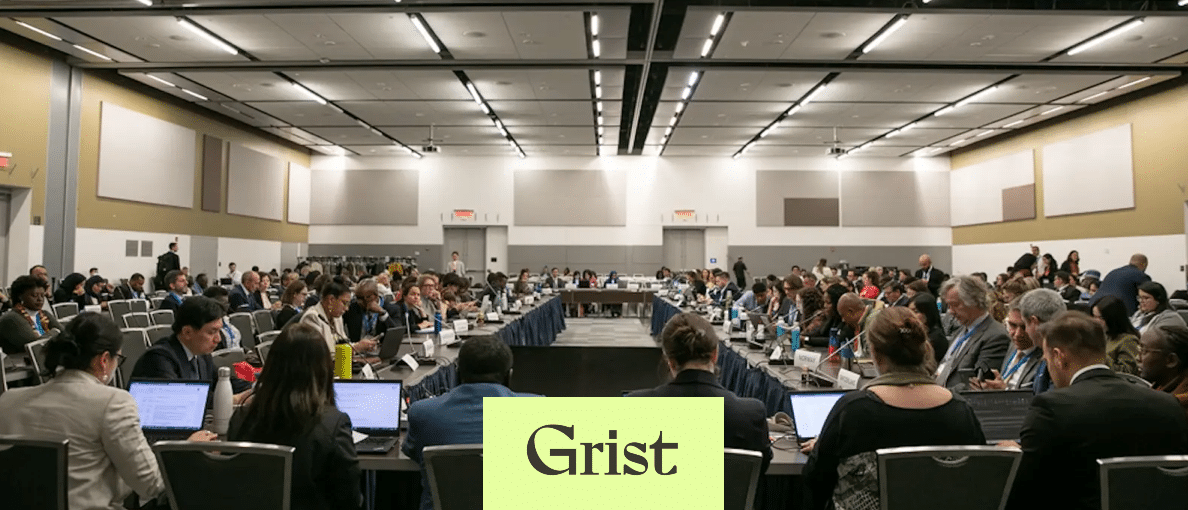Grist reports that negotiators from more than 170 countries are arriving in Geneva, Switzerland, this week to resume discussions over the United Nations plastics treaty, eight months after they missed their original deadline for finalizing the pact.
Many delegates, advocacy groups, and U.N. officials are hopeful that the 10-day session, which kicks off today and runs through August 14, will result in a final agreement that delivers on the U.N.’s objective to “end plastic pollution.” But progress has been slow at each of the five preceding sessions, in large part due to a consensus-based decision-making structure that has allowed oil-producing countries to obstruct progress.
Bjorn Beeler, executive director of the nonprofit International Pollutants Elimination Network, has attended each treaty negotiating session, as well as previous U.N. meetings on plastic pollution starting in 2018. He isn’t expecting much progress on production limits either, saying the conversation on the topic hasn’t “matured” in the same way it has for other priority areas, particularly chemicals and their impacts on human health. Since treaty negotiations began, researchers have identified more than 16,000 chemicals used in plastic products, 4,200 of which are known to have hazardous properties. Most of the other chemicals have never been assessed for toxicity.
Read the full story in Grist.
